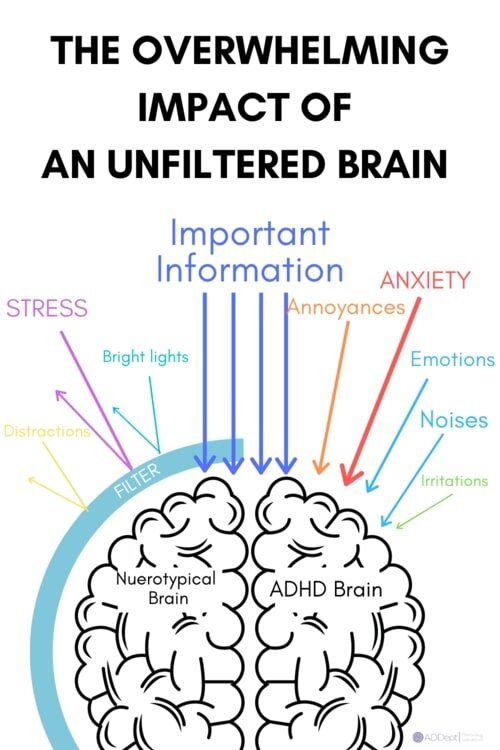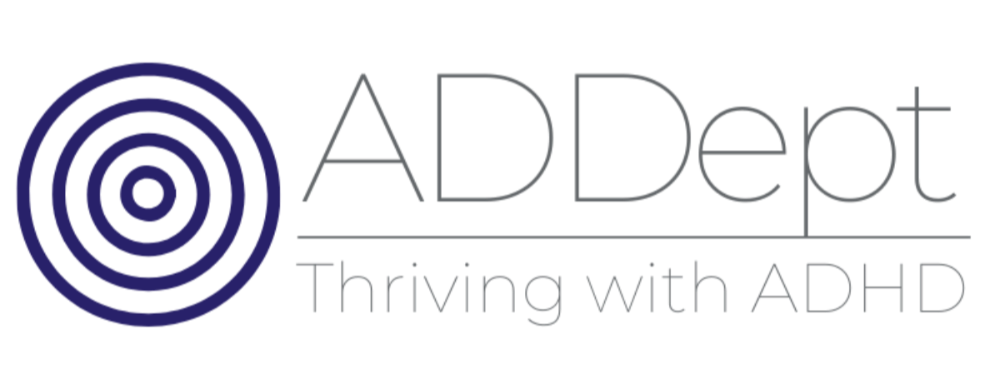
Why am I so sensitive?
Understanding Hypersensitivity and ADHD
It’s been said that a surefire way to tell if you have ADHD is if you had a tag collection as a kid. Few things annoy an ADHD brain more than that irritating scratch on the back of your neck, the pull of a too-tight waistband, the poke of an errant underwire, or the bark of an anxious dog. All these irritants of the world act like sand in the mouth of an oyster- only for ADHD brains that irritation creates rage, frustration, distraction, and emotional overwhelm, instead of a perfect pearl.
What is Hypersensitivity:
Hypersensitivity, also known as hyper empathy syndrome, HSP, and sensory sensitivity, is widespread in people with ADHD. People with hypersensitivity tend to be easily overwhelmed by both physical and emotional stimuli. This can lead to strong reactions like anger, rage, or even physical reactions like headaches and rashes.
All too often, people with hypersensitivity are made to feel crazy. They are told, “you’re too sensitive” or “you need to toughen up.” But the sensitivity that the ADHD brain experiences isn’t the result of a character flaw- it can't be toughened out of it. It's a neurobiologically based symptom. In fact, people with hypersensitivity entire systems are extra sensitive- so much so that they are much more likely to suffer from biological sensitivities like asthma, eczema, and allergies.
ADHD hypersensitivity symptoms:
When hypersensitive ADHD brains are more likely to be flooded and extremely bothered by:
-
Loud, sudden noise
-
Bright or flashing lights
-
Fast objects
-
Strong Odors
-
Too much information
-
Coarse fabric or tags
-
Clothing that's too tight
-
Hair rubbing against skin
-
Too many people (can cause claustrophobia)
-
Strong feelings (their own or other people’s)
-
Minor disagreements or frustrations
-
Tactile sensitivity
Why is the ADHD brain more Sensitive?

You know that experience where you are thinking something that you know you shouldn’t say, you tell yourself, “definitely don’t say that.” Then before you even finish that quick admonition, the words are out of your mouth? We often say that's due to a “lack of filter.” And it’s easy to see that lack of filter on things coming out of the ADHD brain- the interruptions, the sudden outbursts, and the awkward jokes.
But, not having a filter on things going out also means there isn’t a filter on things coming in either. So everything comes into awareness- every noise, every sight, every sound, and every feeling.
Neurotypical brains can adapt to sensory information. So if they're wearing a watch, let’s say, they may be aware of it for a moment after, but they soon stop registering that it’s there. The same happens for noises, smells, and other sensations- the brain tunes out consistent information to attend to more important things. The ADHD brain isn’t so great at this. It doesn’t filter out that extra info; it all just keeps streaming in, picking up on every detail and piling one on top of another until the system is completely overloaded.
Emotional Sensitivities and ADHD
ADHD emotions are often stronger, more sudden, and more overwhelming. These heightened emotions then flood and overwhelm the ADHD brain, often causing people to act out in rash and seemingly irrational ways. But, when you look at what's really happening- it makes a lot more sense.
A system under siege:
Because the ADHD brain doesn’t have a filter for information, it's always under siege from all the information, sensations, and environmental stimuli coming at it. This onslaught causes our body’s sympathetic nervous system, it's fight or flight alarm system, to be on high alert- ready to help us fight off an attack, flee as fast as possible, or freeze with the hope that an assailant passes us by. This type of preparation, though, leaves us interpreting the world as though it is poised to hurt us. So any comment, any passing look, or any missed remark is more likely to be read as something intended to wound rather than accidental or unrelated.
An Emotional Sponge:
Also, because the ADHD brain doesn’t filter information, it is more likely to pick up on every little look, every passing expression, and every small nuance of a person’s face. This makes emotionally sensitive ADHD brains very perceptive. Often people with ADHD are excellent readers of other people’s emotional experiences. They can almost feel people’s feelings without even being told. And while this can be a useful tool. It's also excruciating. It means that you don’t just have to feel your own feelings but that you're subject to anyone else's feelings that you might encounter.
Zero to Sixty in an Instant:
The lack of filter that overwhelms the ADHD brain with sensations and other people’s feelings also struggles to filter internal emotions. So, when an ADHD brain feels a feeling, it feels it on full blast. ADHD brains don’t regulate emotion (just like they don’t regulate attention or action either)- they either feel them entirely or not at all. It’s an on/off switch instead of a dimmer switch. So there is no just-a-little angry-- the system goes from “I’m fine” to full rage in an instant. Now combine this with a system under siege, and the emotional issues with ADHD start to make more sense.
ADHD and Physical Sensitivities:
The lack of filter on the ADHD brain means that it can’t adapt to sensations. So, rather than feeling that itchy tag in a shirt for a moment and then it says “that’s not important,”- the ADHD brain never stops noticing the tag. All-day long, it's trying to pay attention to the important things: your professor’s lecture, your wife’s grocery list, your boss’s most recent request. But that tag keeps coming back into awareness, and your focus has to ping pong- back and forth between the task at hand and the itch at the back of your neck.
But, it’s not just the fact that these sensations keep coming into awareness. It’s also how much they're felt. That itching sweater or barking dog- they aren’t just minor annoyances- they’re all-encompassing, rage-inducing, sanity-stealing nightmares. Here, again, the ADHD brain’s difficulty with regulation comes into play- these sensations are experienced to the fullest extent- there's no “just a little annoying” or “just a bit itchy” the ADHD brain doesn’t just experience the sensation, it’s flooded by it.
How to Treat ADHD hypersensitivity
There's no specific treatment for hypersensitivity. But, because it's, in part, due to the ADHD brain’s difficulty with regulation, the treatments that help the ADHD brain regulate are all also helpful in diminishing the impact of hypersensitivity. These include:
-
ADHD medication (both stimulant and non-stimulant): There's no specific medication for hypersensitivity. But ADHD meds help boost the brain's regulatory capacity, which allows it to moderate how much it feels something- both physically and emotionally. Medication also helps the brain focus where it needs to- tuning out those things that it needs most to ignore.
-
Exercise: Exercise isn’t just about keeping your weight down and your heart healthy. Many neurologists see those as just happy side effects of exercises real purpose- keeping our brains at their best- and never was this more true than for ADHD brains. In fact, on a neurobiological level, exercise does the same (and more!) for the brain that ADHD medication does. Read more about the incredible impact of exercise on the ADHD brain here.
-
Meditation: Meditation has been proven to have both calming and focusing effects on the ADHD brain. This allows your system to come back to calm more quickly after it gets overwhelmed, and it helps you add in some space before acting from that overwhelmed place.
-
Nutrition: Keeping your body (and therefore brain) well-fed is essential to helping it regulate emotions and sensations. Our brains use up 50% of our blood sugar, and when it doesn’t have a nice, steady stream of blood sugar, it can’t do that hard work of feeling just a little bit of a feeling or ignoring the car alarm down the street.
-
Sleep: Making sure you get 7-8 hours of proper sleep (not just in bedtime) fuels your brain to its greatest natural extent. Anything less than a full night's sleep starts to wear away at its ability to regulate.
Tips for living well with ADHD Hypersensitivity
Helping boost your brain’s ability to regulate will not cure its hypersensitivity; it just makes it better and easier to handle. So if you can’t change your brain, then changing your environment is essential to living a life you love.
-
Respect your brain- Honor what does and doesn't work for your brain. Don't force it to do things it doesn't do well.
-
Give yourself space- When you get overwhelmed, walk away. Give yourself space from the things that are overwhelming you and center your mind. Once your system has settled down, then decide if and how you want to re-engage.
-
Block it out- Don't hesitate to use noise-canceling headphones, blue light-blocking glasses, or other strategies for blocking all that extra stimulation.
-
Set boundaries and expectations: Once you know what overwhelms your brain, you get the chance to set the boundaries to protect it. Have a friend with three loud kids and two barking dogs? Suggest you meet at a park or for a girl's lunch. Feel overwhelmed in crowded venues? Say no to the giant concert and agree to go to a small outdoor concert instead.
-
Share it- Sharing your sensitivities will help the people closest to you understand and respect your boundaries. Let them know what it feels like to you (maybe even share this article) and watch as attitudes change and compromises are reached.
-
Change it up- Overwhelmed by the giant superstore? Head over to your local grocer instead. Can't handle the tags? Commit to buying tagless clothing. Don't make your brain handle all the extra stimulation over and over- start brainstorming ways to change it up.
Looking for a step-by-step process to handle your emotional sensitivity? Don’t miss the brand new FREE ADDept online masterclass, the 5-step process for developing emotional mastery with an ADHD brain.






